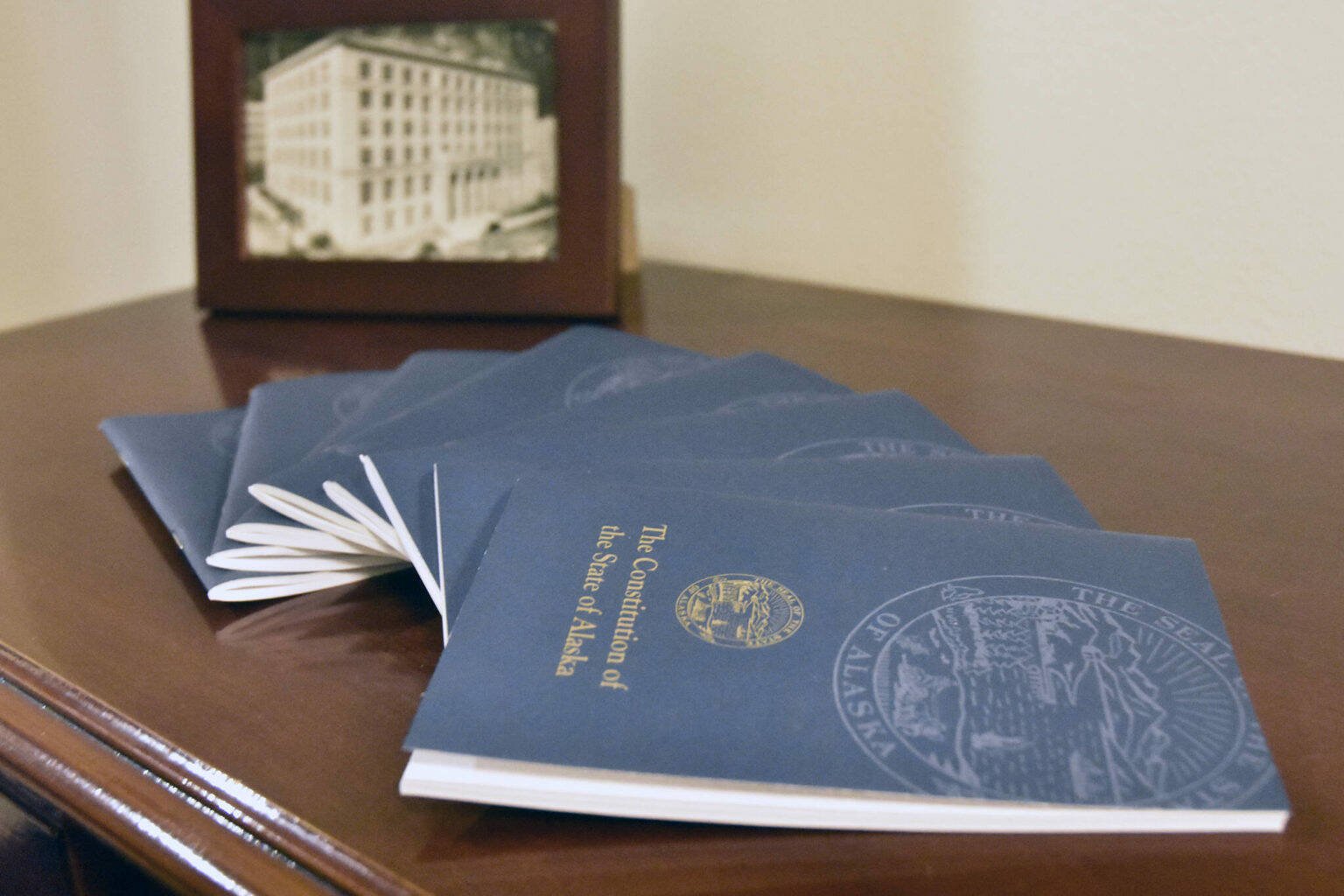A group formed to oppose holding a constitutional convention announced Thursday an expansive list of Alaskans that had joined its coalition and said it was expanding its information campaign to educate Alaskans on the subject.
In a meeting with reporters, co-chairs of Defend Our Constitution announced more than 150 Alaskans have joined the coalition to jointly express the belief a constitutional convention would be unnecessary, expensive and dangerous.
“We have a lot to lose,” said Cathy Giessel, a former Republican lawmaker from Anchorage who served as president of the Alaska State Senate. “We’re going to start over from scratch — how many investors will want to invest, what will the economic impact be?”
Speakers emphasized the political diversity of their coalition, saying members had put aside political differences to join in opposition to a convention. The group is chaired by current and former state lawmakers, former local officials, a union official and the president of an Alaska Native regional corporation all of whom emphasize their belief a convention would be costly, contentious and potentially disastrous for the state.
Giessel was joined by fellow co-chairs former Fairbanks senator John Coghill, a Republican; Rep. Bryce Edgmon, I-Dillingham; Alaska AFL-CIO President Joelle Hall; former Fairbanks Mayor Luke Hopkins; and former Juneau Mayor Bruce Botelho; as well as former state Rep. Alyce Hanley who served from 1985-1990; economic development specialist with the University of Alaska Anchorage Penny Gage; and vice president of Pebble Limited Partnership Mike Heatwole.
[House passes amendment to exempt state Medicaid program from covering abortions]
Speakers emphasized the uncertainty a constitutional convention would create and said the existing process of amending the constitution through the Legislature had proven to be successful. Coghill — who is among the four dozen candidates running in the special U.S. House race — said there were many things in Alaska’s constitution that as a conservative he wanted to see changed, but that a constitutional convention was a dangerous way to try to achieve those goals.
“Alaska was built on a very good foundation, could be better there’s no doubt about it,” Coghill said. “But I don’t think you should change the foundation just to change the house.”
Coghill and others emphasized that during a convention the entirety of the state’s constitution is subject to change, and several said current political divisions both in Alaska and the nation made this the wrong time to re-work the state’s foundational document.
“If you think it’s divided (in the Legislature) just wait until you see the outside money coming in,” Coghill said. “We have a lot to gain by staying where we’re at.”
But that’s something Chairman of the Alaskan Independence Party Bob Bird disagrees with.
“The term that its unnecessary, that comes from people who are just fine with the status quo,” Bird told the Empire in an interview. The Alaskan Independence Party is one of three parties recognized by the state. Convening a State Constitutional Convention is the third item on the party’s platform.
Bird has openly advocated for a constitutional convention and said Thursday there were any number of issues where frustration with legislative deadlock made the prospect of a constitutional convention appealing. The Alaskan Independence Party has drafted its own version of a state constitution and Bird said there were few reasons not to at least attempt a convention.
To the argument the convention would be expensive and contentious, Bird said, “that’s true about every constitutional convention, you don’t know unless you try.”
Opponents of a constitutional convention argue that Alaska’s constitution is considered one of the best in the nation. That’s because it was written at a time when its authors could look to other state constitutions amid a changing economic landscape, according to Gordon Harrison, author of “Alaska’s Constitution: A Citizen’s Guide.”
“The reason the Alaska constitution has been considered a good one is that it created strong institutions of government, it created a strong Legislature and strong governor, a strong executive branch,” Harrison said.
Other state constitutions had been extremely prescriptive, Harrison said, in some instances setting salaries for low-level government officials. According to Harrison, Alaska’s constitution created a strong legislative branch that met annually and could address the needs of the state through law.
The Alaska Constitution requires voters be asked about a constitutional convention every 10 years — in 2012 voters overwhelmingly rejected the proposal. But there is an increased amount of cynicism about the government, Botelho said, and there seemed to be a different atmosphere. Still, Botelho said, the group has not yet made plans for what it will do if voters do approve a convention.
“We’re expecting a ‘No’ vote,” Botelho said. “We have made no plans about what happens in the unlikely event there is a convention.”
Giessel said over the next several months the group will work on an information campaign to dissuade Alaskans from a constitutional convention.
“Our focus is helping Alaskans understand this is unnecessary, expensive and dangerous,” Giessel said. “But we believe Alaskans are quite rational, they understand the political turmoil.”
• Contact reporter Peter Segall at psegall@juneauempire.com. Follow him on Twitter at @SegallJnuEmpire.

